Election 2022: Women candidates battling to win office
At least 21 political contests will be fought between women in the federal election, including one featuring a Survivor contestant. For many, the odds are firmly against them. Here’s why.
Federal Election
Don't miss out on the headlines from Federal Election. Followed categories will be added to My News.
At least 21 political contests this election will be fought out between women, with female candidates going head-to-head in a swathe of seats across the country.
But women remain under-represented in the two major parties, comprising slightly more than one third of candidates – with the Coalition lagging well behind Labor.
Women are also under-represented in winnable seats, particularly in the Liberal and National parties, meaning the next parliament will still be stacked with men.
This is despite a robust public debate about the treatment and standing of women in politics, and data showing women are just as likely as men to win, with no gender bias shown by voters.
Analysis by News Corp shows 103 female candidates have so far been selected by April 12 to contest the election for the Australian Labor Party and Liberal-National Coalition across the 151 House of Representatives seats.
At the last election, 112 female candidates were selected to compete for the major parties across 150 seats.
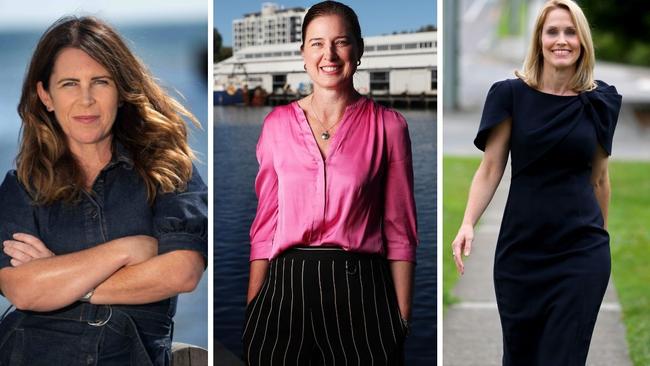
Women are the main contenders in 21 seats – seven each in electorates in Victoria, and NSW, three in WA, two update in South Australia and one each update in Tasmania and Queensland.
Of those seats, 10 of the incumbents or presumptive incumbents are ALP women, eight are Coalition women, and three are female independents.
The data shows both parties have endorsed fewer women at this election.
In the 2019 election, Labor put forward 66 female candidates, with 28 elected – a success rate of 42.4 per cent for women. This time, 63 women have been preselected.
The Coalition put forward 46 female candidates, of which 15 were elected, a success rate of 32.6 per cent. This time, 40 have been preselected.
HOW COALITION AND ALP COMPARE
The results from 2019 indicate Coalition women were less likely to be nominated in safer or more winnable seats than their Labor counterparts.
The Australian Labor Party has a quota which requires 50 per cent of candidates to be female, where the Liberal and National parties do not.
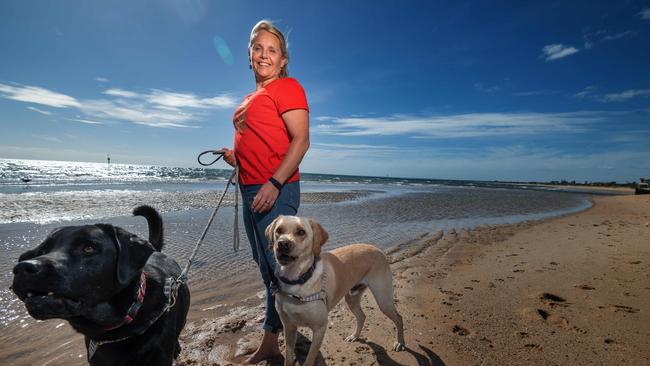
Almost 20 years ago, it was a different story, with the Coalition doing better than Labor in getting women elected to the parliament.
In 2004, the ALP put up 46 females for the election, with 20 candidates elected, a success rate of 43.4%.
The Coalition put up 37 women that year, and succeeded in getting 18 elected, a success rate of 48.65 %.
In Victoria, independent incumbent Helen Haines’ main rival in Indi will be Nationals candidate Elizabeth Fisher, while in South Australia’s Mayo, Centre Alliance incumbent Rebekha Sharkie’s main competition is the Liberal candidate Allison Bluck. NSW independent Zali Steggall’s main rival in Warringah is Liberal Katherine Deves.
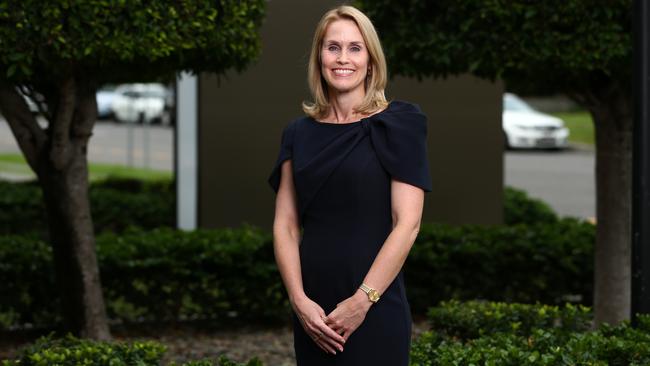
A number of the all-female contests are in marginal seats, including Boothby in South Australia, the Victorian seats of Chisholm, Corangamite and Dunkley, and NSW marginals Macquarie, and Reid.
The seat of Pearce in Western Australia is a wildcard. Vacated by former Attorney-General Christian Porter, it will be fought out between Liberal candidate Linda Aitken, and Labor’s hopeful Tracey Roberts.
Another WA seat, Swan, is being vacated by a long-term male MP, Steve Irons, and being contested by Labor’s Zaneta Mascarenhas and the Liberals’ Kristy McSweeney.
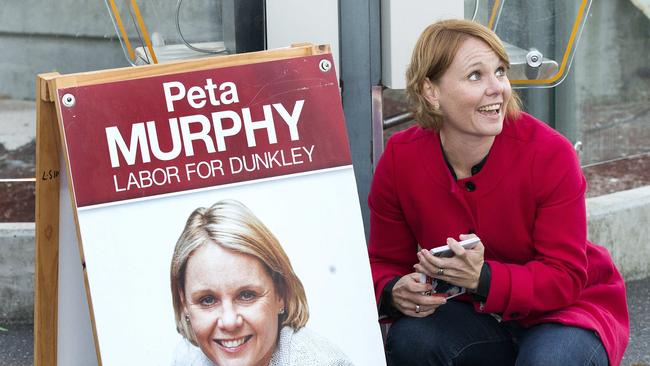
Two of Australia’s highest-profile female former MPs, ex-PM Julia Gillard (Labor) and ex-Foreign Minister Julia Bishop (Liberal) were unable for comment.
However, Professor Michelle Ryan, the director of the Global Institute for Women’s Leadership at Australian National University, said women continued to be under-represented, making up only 36 per cent of the candidates announced by the two major parties up until March 31.
“In our current House of Reps, women only make up 30% of MPs. Given the prominence of ‘women’s issues’ in the up and coming election, it will be interesting to see if this changes,’’ she said.
THE TOUGHEST SEATS TO WIN
Prof. Ryan said up until March 31, 44 per cent of Labor’s candidates were women, and 25 per cent of the Coalition’s.
She said the key question was how often women were elected in unwinnable seats, based on two-party preferred votes.
“For the Labor Party’s unwinnable seats, women make up almost half the candidates (49.5 per cent v 50.5 per cent men).
“But looking at the winnable seats they are again under-represented, making up 32% of candidates (vs 68% who are men).’’
Prof. Ryan said under-representation was also evident in the Liberal National Coalition. In unwinnable seats, women made up 37 per cent of the candidates, compared to 63 per cent who were male.
“Looking at the winnable seats they are even more under-represented, making up only 13% of candidates (vs 87% who are men).’’
Professor Ryan said previous research had shown women were as likely to be elected as men in winnable seats.
Based on current preselection trends, women would be less successful than their male counterparts in this election, because of the seats in which they were selected.
“Research suggests that quotas are one of the most effective initiatives to accelerate gender equality,’’ Prof. Ryan said.
“While there is some resistance to quotas on the basis that they are seen as unfair, this assumes that the current state of play of meritocratic – which it clearly is not.’’
Ms Gillard is the chair and founder of the Global Institute for Women’s Leadership, and Ms Bishop is the first female Chancellor of the ANU.
THE WOMEN BATTLING TO WIN NSW VOTER’S HEARTS
Labor’s candidate for ultra marginal Reid in Sydney’s inner west, Sally Sitou, doesn’t just want to change politics – she wants to blow the whole idea of a politician apart.
Born to Chinese parents fleeing conflict to come to Australia, Ms Sitou knows she is different to the typical political candidate, but says that will win her the election.
“I recognise that I’m in a unique position because of my background – I’m a woman, I’m someone of Chinese heritage, my family fled conflict to come here,” she said.
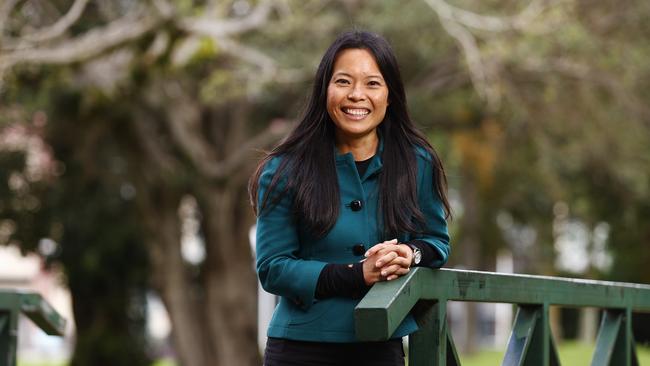
“All of those things put me in a unique position to also demonstrate the potential and promise of this country and that someone like me, is supported by the Labour Party, to put my hand up to run in one of the most marginal seats NSW I think that’s a really good statement, having young girls come up to me and say, it’s really cool that you’re a woman and you’re running for politics that’s really special.”
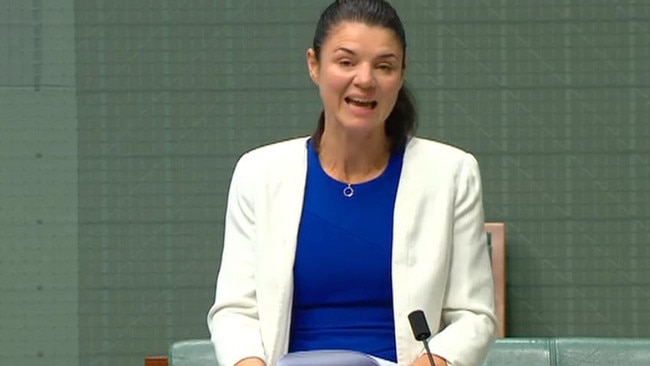
Reid is shaping up to be a must win race for whoever forms government, currently held by Liberal Dr Fiona Martin on a 3.2 per cent margin.
Previously a Labor stronghold since 1972, the seat flipped blue in the 2013 election, and Labor will be desperate to gain it back this year.
While being a woman wasn’t the main driver in why Ms Sitou put her hand up for Reid, the reaction to a small handful of online trolls and angry people in the street quickly proved it would play a part in the campaign.
‘WEARING OUR HEART ON OUR SLEEVE’
One particular incident when a man told Ms Sitou he was surprised she “wasn’t taller and didn’t have more presence” cemented her desire to destroy the politician stereotype.
“On the one hand I get that it’s hard in politics but I think it’s important that we have candidates like me who want to wear her heart on her sleeve,” she said.
“We shouldn’t just have these battle hardened, war weary people who enter politics. I’m not intimidated by that, I go in wanting to change it though.
“I want to change not just the boys club, but the vision and the idea of what a parliamentarian should look like.”
THE WOMEN WANTING TO WIN OVER VICTORIANS
One of the nation’s closest contests will be fought between two women in a seat named for the female trade unionist who won equal pay for women, back in the early 1900s
The seat of Dunkley in Melbourne’s southeast suburbs is named for Louisa Dunkley, a telegraphist with the Postmaster-General’s Office who succeeded in having equal pay for female telegraphists enshrined in legislation in 1902.
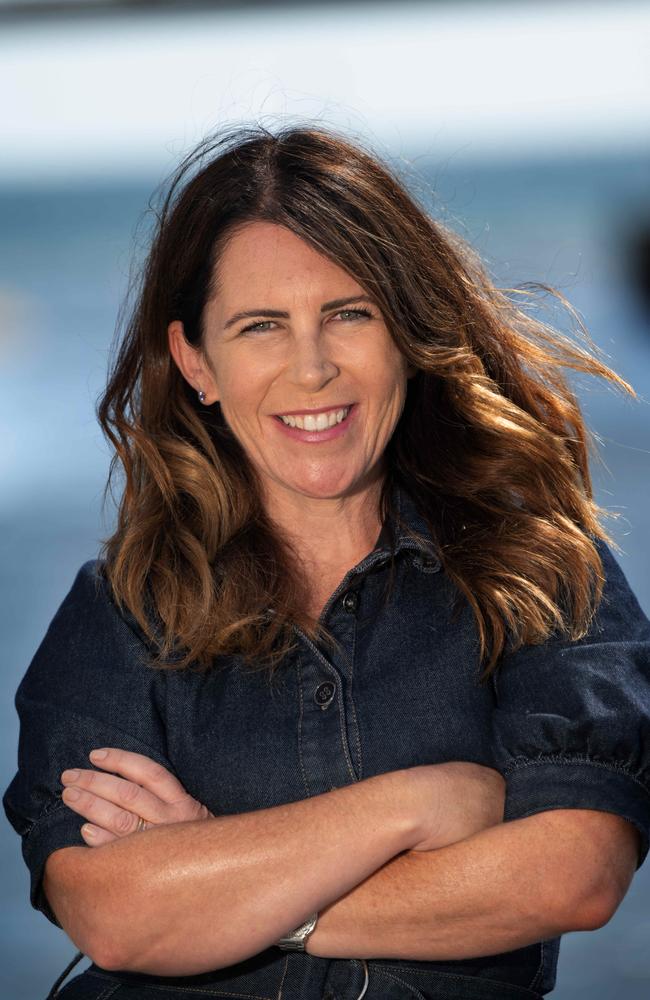
A relatively new seat based around Frankston and surrounding bayside suburbs, it has had only one female federal Member of parliament – the incumbent, Labor’s Peta Murphy, who was elected in 2019.
Ms Murphy’s main competitor in the election is another woman, Liberal candidate Sharn Coombes.
The pair are both aged in their 40s. Each had an established career in the law before joining politics. They both have strong sporting and community ties, and the contest, in a seat held by a margin of just 2.7 per cent, will be one of the most closely watched in Australia on election day.
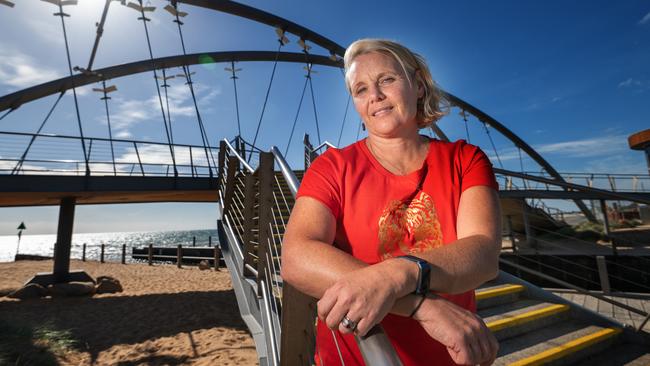
Ms Murphy, an ALP member for decades, is a former defence lawyer, political staffer and policy Adviser. She has a psychology degree, a law degree and a masters in criminology, and left politics to practice criminal law in the early 2000s, before standing for election in 2016. She was unsuccessful on her first attempt but won the seat, which had been in Liberal hands since 1996, in 2019.
DEFENCE LAWYER HAS SURVIVOR INSTINCT
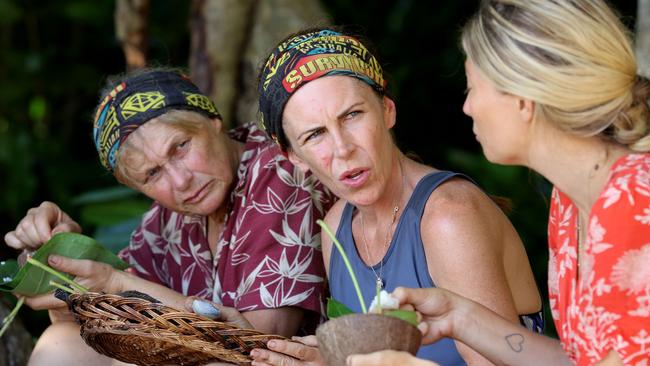
Ms Coombes is a more recent arrival on the political scene. Also a former defence lawyer, she was admitted to the Bar at the age of 23, and went on to become a Crown prosecutor, taking on murder, rape and family violence cases.
She also made a name for herself by twice competing in the reality TV show Survivor, in 2018 and in the All-Stars series in 2020. This is her first bid for election.
Ms Murphy, 48, said female representation in politics had improved since she first became a justice policy Adviser in 1999.
“There are demonstrably many more women in the Labor caucus than there were when I was a 25-year-old Adviser,’’ she said.
Ms Murphy worked as chief of staff to Labor frontbencher Brendan O’Connor from 2017 until she was elected, and was one of only a handful of female chiefs of staff at that time.
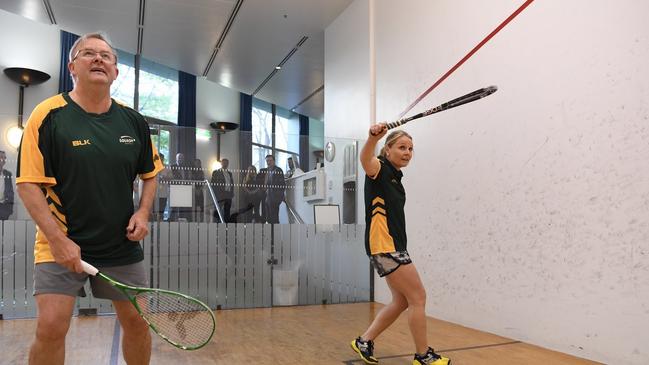
“I think we could still have more women in senior staffing positions,’’ she said.
“But I can feel the difference in the party, from the real genuine effort to get more women not just into parliament, but women involved in branches and advocacy and that side of it, definitely.’’
‘IMPORTANT TO HAVE A STRONG VOICE’
Ms Coombes, 45, joined the Liberal Party in 2019, and was endorsed as the Dunkley candidate in July.
“I think it’s so important for women to be in public life, to have a strong voice,’’ she said.
“As women we do things so well and I just think we bring a different flavour to things, a different perception, different abilities, and that’s how our community is best served, when you get a really good cross section and diversity in the parliament.’’
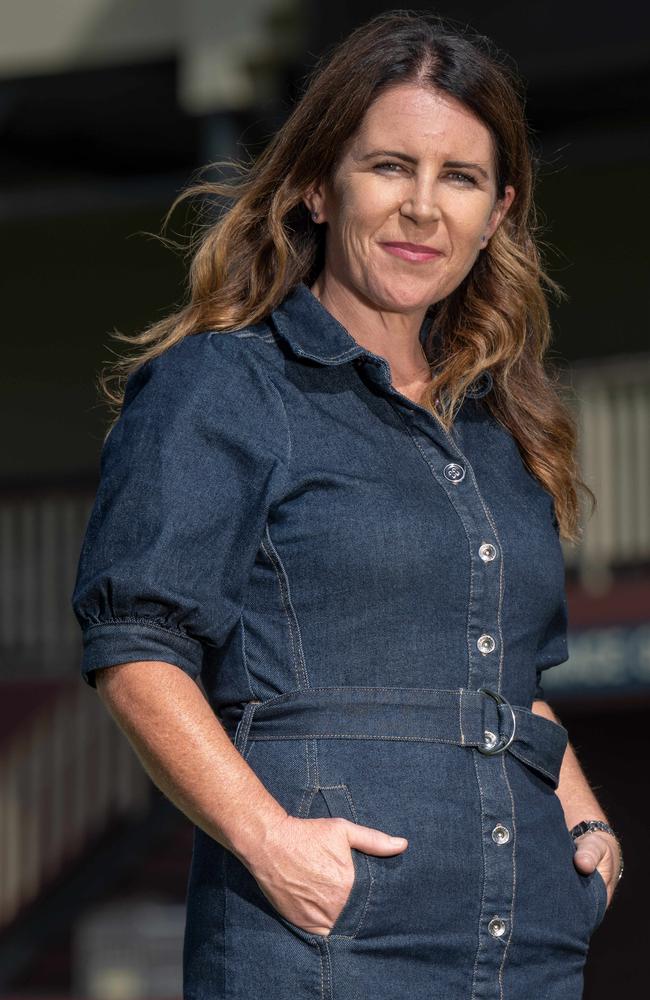
Ms Coombes said she wanted to understand the barriers that prevented women from putting their hand up for preselection.
“I think from that perspective there are challenges and barriers that women face to becoming candidates but at the end of the day I want to see
more women come into this space – it’s one of the reason I am stepping into because I feel you do something, you led by example, others will follow,’’ she said.
Both women carefully navigated questions about the treatment of women in politics, following months of headlines about the Coalition’s “women problem’’ such as the alleged sexual assault of former staffer Brittany Higgins, and accusations Labor women bullied Labor Senator Kimberley Kitching in the weeks leading up to her death from a heart attack.
Ms Murphy and Ms Coombes both said they had no personal experience of problems within their own parties, and had only positive experiences and support from those around them.
Neither candidate sought to paint the election as one to be fought solely on “women’s issues,’’ and the campaign will be a contest around who is best placed to deliver healthcare, access to child care and education, ease cost of living pressures, and local electorate issues.
Ms Murphy lives in the electorate with her husband. An accomplished sportswoman who played elite-level squash and softball, she has had to wind back her sporting commitments following two bouts of breast cancer, which led to a double mastectomy.
Ms Coombes moved to the electorate about a year ago with her husband and four children aged 10-19. She runs marathons and competes in triathlons and fun runs, a hobby started when her eldest child was ill as a baby, and she ran to raise money for the Royal Children’s Hospital.
- Additional reporting by Jessica McSweeney
More Coverage
Originally published as Election 2022: Women candidates battling to win office





